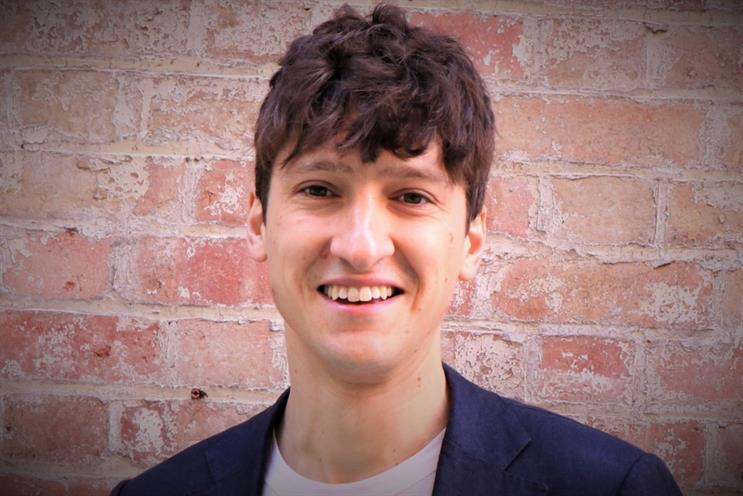Late last week, Sainsbury’s became the latest brand to be drawn into the ongoing debate surrounding the potential boycotting of GB News. The speculation from commentators suggested it was in reaction to comments from Nigel Farage on the RNLI; however, the supermarket chain simply confirmed that its current advertising campaign, which included presence on GB News, had come to an end.
From the little we know so far, GB News is the following things: pro-Brexit, anti-metropolitan elite, and non-London-centric. Positions that are all the antithesis of the average media agency staffer.
And therefore, we see media planners encouraging brands to boycott the channel, when it’s still less than a few months old. (Parking technical glitches to one side as a reason to withdraw – those are teething issues that will be sorted out.)
The primary driver behind agencies and brands boycotting the channel is that they simply don’t like what it broadcasts and the audience it represents.
Did the industry learn nothing from the brilliant Andrew Tenzer’s The Empathy Delusion research published back in 2019? In a sentence, Tenzer’s research concluded that “people in adland unconsciously see, experience and interpret the world differently to large swathes of the UK population”. And that is precisely what is happening again today.
The research challenged the commonly held belief that “marketing and advertising people have a special aptitude for understanding others”. They don’t. They need to be guided by data instead.
Established approaches and traditional thinking are being exploded in every sector and every market. Growth requires uncomfortable change. Growth needs agencies to be provocative. A recent extended stint of parental leave led me to watching Good Morning Britain every day. Not something I’d previously thought would be part of my daily media diet and a habit that quickly generated derision from friends and agency colleagues alike. Piers Morgan is Marmite: a provocateur of the highest order.
Yet it became clear to me pretty quickly that he knew how to hold politicians to account. An Ipsos Mori poll from January this year rated Morgan as in fact doing this better than TV and radio journalists, Keir Starmer, newspaper journalists, MPs and the Labour Party. (He was still behind Marcus Rashford – but hey, that’s perhaps no surprise.)
While still at the helm, Morgan saw a record high of 1.9 million viewers tuning in. On 2 June this year, a few months after his departure, GMB sank to a low of 451,000 viewers.
Note to media planners – that data right there highlights the empathy delusion once more.
Stop Funding Hate is back out in force trying to convince brands to avoid GB News. Despite years of campaigning, it has still not rendered the Daily Mail ad-less.
Why? Because every media planner knows that it remains the second most read daily newspaper in the UK, and knows the role it can play for an advertiser – even if the media planner in question doesn’t agree with the paper’s politics.
Agencies are busy baking diversity and inclusion into their various operating systems. Some of this comes from the diversification of current media partners and checking our own biases.
It’s too easy to plan within your own media echo chamber – how will you reach those with differing political views or opinions to yourself if you do? It might feel like a challenge, but growth is challenging.
Consolidated audience data on GB News showed that in the four weeks up until 11 July, it reached 3.7 million viewers (compared with 12.6 million for BBC News and 8.4 million for Sky News), showing that the 336,000 viewers it received on launch night wasn’t a flash in the pan.
A canny media planner might also point out that given that was the hottest day of the year and featured an England Euros fixture, that 336,000 number looked even more impressive. Oh, and did I mention that 82% were also the much-coveted ABC1 audience?
Some parts of the press have gleefully reported the channel registering zero viewers at one point in recent weeks. Yet we didn’t see anywhere near as much press noise when Steph’s Packed Lunch on Channel 4 suffered the same sorry fate last autumn.
GB News is staffed with a wide range of journalists that are professional enough to have held long tenures at the BBC, ITV and The Sunday Times and come from a variety of ethnic and regional backgrounds.
Making half-baked comments that it’s a “rogue outfit” or “the opposite of diversity” seems misplaced thus far. Nigel Farage is now signed up, but perhaps most interestingly so is Arlene Foster, vowing to “bring Northern Ireland into the mainstream of UK politics”.
I’d be keen to know if the media planners on Kopparberg or Ikea agree with the decision those brands have made to withdraw from the channel. The Co-op has taken a more grown-up approach, continuing to use the channel, despite online abuse from one London-based journalist (an ex-employee of the BBC and Chanel 4 News). The irony.
The Co-op is reminding consumers that their “value and principles are clear and undiminished regardless of surrounding content”. Respecting its consumers who know that it isn’t necessarily condoning the editorial it appears alongside – be it on TV, in the national press or on digital channels. Simple fundamentals of our craft.
In his opening monologue, channel founder Andrew Neil declared that at GB News, “we will reflect the views and values of our United Kingdom”, and “we will concentrate on the stories that matter to you”.
And finally: “We are proud to be British.”
If you’re projecting your views on to your brand’s audience, I ask you: do your views and values represent those of your target audience? Do you concentrate on the media placements that matter to your clients’ brands?
And finally: are you proud to be a media planner?
James Wilde is managing partner at Wavemaker UK


